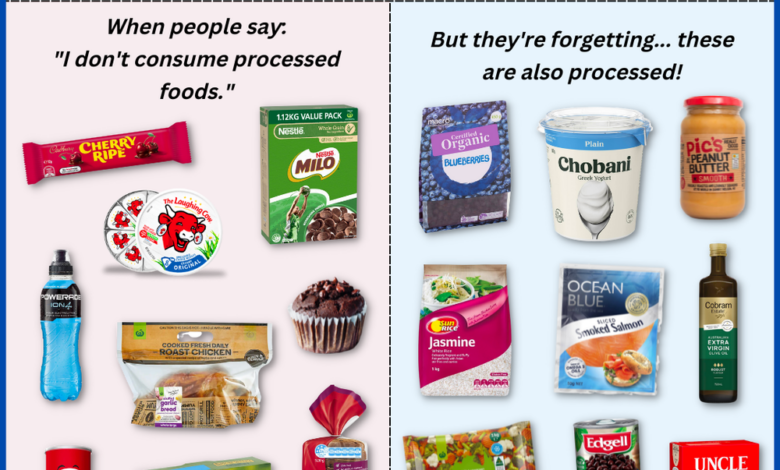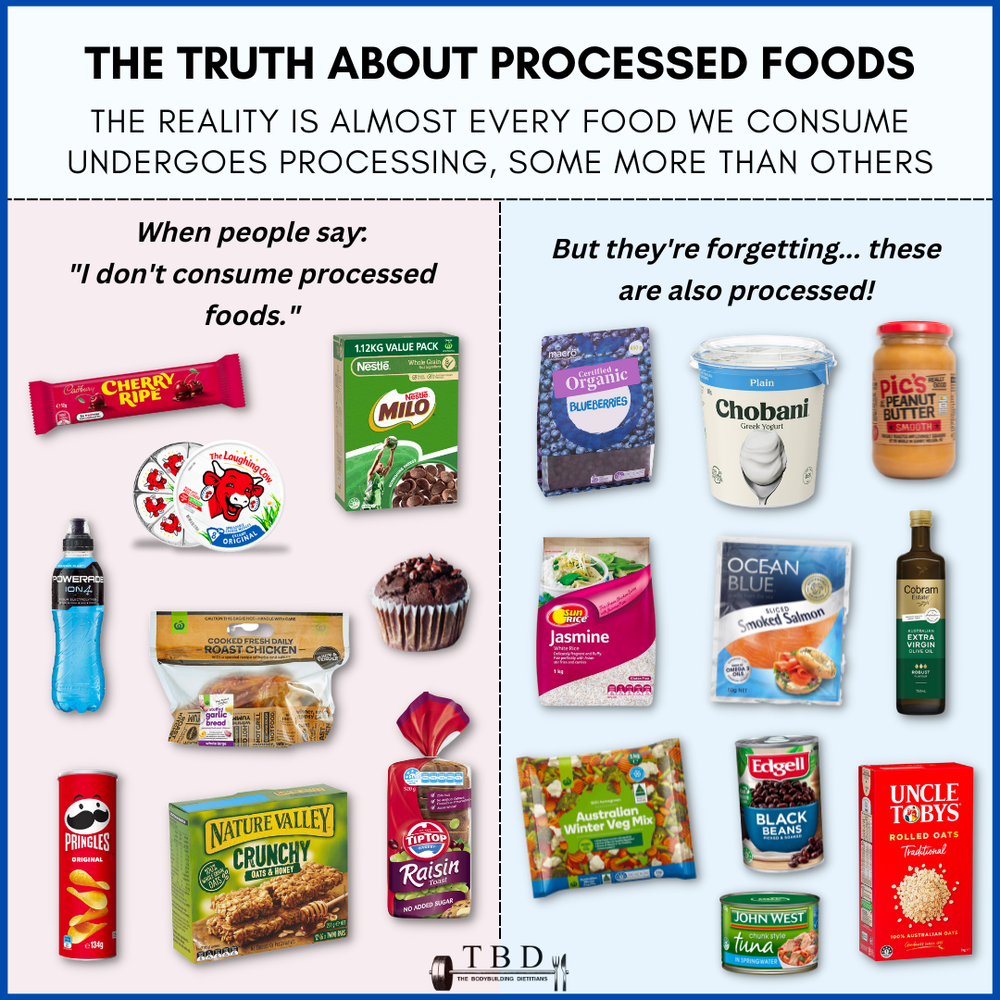
Why Fast Food Gives You Brain Fog: Science Explains
Why fast food gives you brain fog according to science is a question that’s increasingly on people’s minds. We all know that feeling – that sluggishness, the inability to focus, the mental fog that descends after a greasy burger and fries.
But what’s actually going on in our brains to cause this?
It turns out, the science behind fast food and brain fog is complex, involving a combination of factors that impact our blood sugar, nutrient levels, gut health, and even inflammation. From the simple carbohydrates that cause blood sugar spikes to the unhealthy fats that clog our arteries, the ingredients in fast food can wreak havoc on our cognitive function.
But don’t worry, understanding these mechanisms empowers us to make informed choices about our diets and protect our brains.
The Impact of Fast Food on Blood Sugar Levels
Fast food, often characterized by its convenience and affordability, can have a significant impact on our blood sugar levels, leading to fluctuations that contribute to brain fog. Understanding how fast food affects blood sugar is crucial for making informed dietary choices.
Ever wonder why that greasy burger leaves you feeling sluggish? Science points to the processed ingredients and unhealthy fats in fast food, which can spike blood sugar and trigger inflammation, both contributing to brain fog. But don’t despair! You can still enjoy pizza without the brain fog by opting for healthier options, like those found in 11 healthy pizzas under 400 calories.
By making smart choices, you can fuel your brain and body for optimal performance, avoiding the dreaded brain fog and enjoying delicious food!
The Role of Simple Carbohydrates and Sugar
Fast food meals are often high in simple carbohydrates and added sugars, which are rapidly digested and absorbed into the bloodstream. This rapid influx of sugar causes a sharp spike in blood sugar levels, followed by a subsequent crash.
Simple carbohydrates, like those found in white bread, sugary drinks, and processed foods, are quickly broken down into glucose, the primary source of energy for our bodies.
Glycemic Index of Fast Food Meals
The glycemic index (GI) measures how quickly a food raises blood sugar levels. Foods with a high GI, such as those found in many fast food meals, cause rapid blood sugar spikes. In contrast, foods with a low GI, like whole grains, fruits, and vegetables, are digested more slowly and lead to a more gradual rise in blood sugar.
- A typical fast food burger meal, including fries and a sugary drink, can have a high GI, leading to a rapid surge in blood sugar.
- A healthier alternative, such as a salad with grilled chicken and whole-grain bread, has a lower GI and contributes to a more stable blood sugar level.
Blood Sugar Spikes and Brain Fog
Blood sugar spikes can lead to a variety of symptoms, including brain fog. When blood sugar levels rise rapidly, the body releases insulin to regulate glucose levels. This sudden influx of insulin can cause a rapid drop in blood sugar, leading to feelings of fatigue, difficulty concentrating, and impaired cognitive function.
The brain relies heavily on a steady supply of glucose for optimal function. When blood sugar levels fluctuate significantly, it can disrupt the brain’s ability to function properly, leading to brain fog.
Nutritional Deficiencies and Brain Function
Fast food diets are often low in essential nutrients that are crucial for optimal brain function. These deficiencies can lead to a range of cognitive issues, including brain fog.
The Role of Essential Nutrients in Brain Health
The brain relies on a variety of nutrients to function properly. These include vitamins, minerals, and fatty acids.
- Ironis essential for the production of red blood cells, which carry oxygen to the brain. Iron deficiency, also known as anemia, can lead to fatigue, difficulty concentrating, and impaired memory.
- B vitamins, particularly B12, B6, and folate, play a critical role in the production of neurotransmitters, which are chemical messengers in the brain. Deficiencies in these vitamins can impair cognitive function, leading to symptoms like confusion, forgetfulness, and difficulty thinking clearly.
- Omega-3 fatty acids, found in fatty fish like salmon and tuna, are essential for brain development and function. These fatty acids help build cell membranes, support communication between neurons, and reduce inflammation. A deficiency in omega-3 fatty acids can contribute to cognitive decline, mood disorders, and memory problems.
How Deficiencies Can Lead to Brain Fog
When the brain lacks these essential nutrients, it can struggle to perform its functions effectively. This can lead to a range of cognitive symptoms, including:
- Fatigue: Iron deficiency can cause fatigue, which can make it difficult to focus and think clearly.
- Difficulty Concentrating: B vitamin deficiencies can impair cognitive function, making it difficult to focus on tasks and process information.
- Memory Problems: Deficiencies in iron, B vitamins, and omega-3 fatty acids can all contribute to memory problems, making it difficult to recall information or learn new things.
- Slowed Thinking: A lack of essential nutrients can slow down the brain’s processing speed, leading to feelings of sluggishness and difficulty thinking clearly.
The Role of Inflammation in Brain Fog

Fast food, with its high levels of processed ingredients, saturated fats, and added sugars, can trigger a cascade of inflammatory responses in the body. This chronic inflammation can contribute to brain fog, impairing cognitive function and leaving you feeling mentally sluggish.
Inflammation and Cognitive Decline
Inflammation is a natural process that helps protect the body from injury and infection. However, chronic inflammation, which persists for a long time, can have detrimental effects on the brain. Studies have shown a strong link between inflammation and cognitive decline, including memory problems, reduced attention span, and difficulty concentrating.
So, why does fast food make you feel like you’re wading through molasses? Science points to the high sugar and processed ingredients, which can cause blood sugar spikes and crashes, leaving you feeling foggy and drained. But there’s a bright side: switching to healthier alternatives can make a huge difference! Think about trying out the latest food trend – are chickpeas the new cauliflower ?
By swapping out those processed carbs for nutrient-rich foods, you can help regulate your blood sugar and avoid that dreaded brain fog.
Inflammatory Markers Associated with Fast Food Consumption
Fast food consumption is associated with elevated levels of inflammatory markers in the body. Some of these markers include:
- C-reactive protein (CRP):A marker of inflammation that is often elevated in people with chronic diseases, including heart disease and diabetes. Studies have shown that fast food consumption is associated with higher CRP levels.
- Interleukin-6 (IL-6):A pro-inflammatory cytokine that is involved in the development of chronic inflammation. Research has linked fast food consumption to increased IL-6 levels, which can contribute to brain fog.
- Tumor necrosis factor-alpha (TNF-alpha):Another pro-inflammatory cytokine that plays a role in inflammation and tissue damage. Fast food consumption has been shown to increase TNF-alpha levels, which can contribute to cognitive decline.
Chronic Inflammation and Brain Fog
Chronic inflammation can negatively impact brain function in several ways:
- Damage to brain cells:Inflammation can damage brain cells, leading to cognitive impairment.
- Disruption of blood flow:Chronic inflammation can reduce blood flow to the brain, depriving it of oxygen and nutrients. This can contribute to brain fog and other cognitive problems.
- Impaired communication between brain cells:Inflammation can disrupt communication between brain cells, making it difficult for the brain to process information effectively.
“Chronic inflammation is a major contributor to cognitive decline and brain fog. Fast food consumption can significantly increase inflammation in the body, leading to a vicious cycle of impaired brain function.”
The Impact of Processed Foods on Gut Health: Why Fast Food Gives You Brain Fog According To Science
Fast food, with its high content of refined carbohydrates, saturated fats, and added sugars, can wreak havoc on the delicate balance of your gut microbiome. This intricate ecosystem of bacteria, fungi, and other microorganisms plays a vital role in your overall health, including your brain function.
The Impact of Processed Foods on Gut Microbiome
Processed foods, including fast food, are often low in fiber and rich in unhealthy fats and sugars. These ingredients can disrupt the balance of gut bacteria, leading to an overgrowth of harmful bacteria and a decline in beneficial bacteria.
Fast food is notorious for its ability to leave you feeling sluggish and mentally foggy. This is because the high sugar and processed ingredients can spike your blood sugar levels, leading to a crash that impacts brain function. But what about pasta?
You might be surprised to learn that, contrary to popular belief, can pasta be healthy if you choose whole-grain options and moderate portion sizes. So, while fast food might be a quick fix, it’s important to consider the long-term effects on your brain health.
- High Sugar Intake:Excessive sugar consumption can lead to an overgrowth of harmful bacteria, such as -Clostridium* and -Bacteroides*, which can contribute to inflammation and gut dysbiosis.
- Low Fiber Content:Fiber is essential for feeding beneficial gut bacteria, promoting their growth and diversity. Processed foods are typically low in fiber, depriving beneficial bacteria of their essential food source.
- Artificial Sweeteners:Artificial sweeteners, commonly found in processed foods and drinks, can disrupt the gut microbiome and promote the growth of harmful bacteria.
- Trans Fats:Trans fats, often found in processed foods, have been linked to gut dysbiosis and inflammation, further contributing to an imbalance in gut bacteria.
The Gut-Brain Connection
The gut and brain are intricately connected through the vagus nerve, a crucial communication pathway. This connection, known as the gut-brain axis, allows for constant communication between the two organs, influencing various physiological processes, including mood, cognition, and immunity.
How an Unhealthy Gut Microbiome Can Contribute to Brain Fog
When the gut microbiome is disrupted, it can trigger inflammation and disrupt the communication between the gut and brain. This disruption can lead to various neurological issues, including brain fog.
- Increased Inflammation:An unhealthy gut microbiome can lead to increased inflammation throughout the body, including the brain. Chronic inflammation is linked to cognitive decline, memory impairment, and brain fog.
- Neurotransmitter Imbalances:Gut bacteria play a crucial role in the production of neurotransmitters, such as serotonin and dopamine, which are essential for mood regulation, learning, and memory.
An imbalance in gut bacteria can disrupt neurotransmitter production, contributing to brain fog and cognitive impairment.
- Leaky Gut Syndrome:An unhealthy gut microbiome can lead to increased gut permeability, known as leaky gut syndrome. This allows undigested food particles and toxins to enter the bloodstream, triggering inflammation and contributing to brain fog.
Examples of How Gut Bacteria Influence Cognitive Processes
Research suggests that gut bacteria can influence cognitive processes, such as learning, memory, and decision-making.
- *Lactobacillus* and-Bifidobacterium* : These beneficial bacteria have been linked to improved cognitive function and reduced anxiety and depression. They can also help regulate inflammation and support the immune system.
- *Akkermansia muciniphila*: This beneficial bacteria has been shown to improve gut barrier function, reduce inflammation, and enhance cognitive performance in animal studies.
- *Bacteroides fragilis*: This bacteria produces a molecule called polysaccharide A (PSA), which has been shown to reduce anxiety and improve social behavior in animal studies.
The Effects of Trans Fats and Saturated Fats on the Brain
While we’ve discussed the detrimental effects of sugar and processed foods on brain health, it’s crucial to understand the impact of unhealthy fats, particularly trans fats and saturated fats, on cognitive function.
The Role of Trans Fats and Saturated Fats in Inflammation and Cognitive Decline
Trans fats and saturated fats are known to contribute to inflammation throughout the body, including the brain. Chronic inflammation is a major culprit in the development of various neurodegenerative diseases, such as Alzheimer’s disease and Parkinson’s disease. Inflammation disrupts the delicate balance of brain cells, leading to impaired communication and cognitive decline.
The Impact of Trans Fats and Saturated Fats on Blood Flow and Oxygen Delivery to the Brain
Trans fats and saturated fats can negatively affect blood flow and oxygen delivery to the brain. These fats can contribute to the buildup of plaque in blood vessels, a process known as atherosclerosis. This plaque buildup narrows the arteries, restricting blood flow and oxygen supply to the brain.
Reduced oxygen delivery can lead to brain fog, fatigue, and impaired cognitive function.
Examples of How Trans Fats and Saturated Fats Contribute to Brain Fog Symptoms
- Reduced Memory and Concentration:Studies have shown that high consumption of trans fats and saturated fats can impair memory and concentration abilities. This is likely due to their impact on inflammation and blood flow to the brain.
- Increased Fatigue and Slowed Processing Speed:Trans fats and saturated fats can lead to fatigue and slower processing speed, which are common symptoms of brain fog. The reduced oxygen delivery to the brain due to these fats can contribute to these symptoms.
- Mood Swings and Irritability:Some research suggests a link between trans fats and saturated fats and mood swings and irritability. These fats may disrupt the balance of neurotransmitters in the brain, leading to mood fluctuations.
The Importance of Hydration and Sleep

The brain, like any other organ in the body, relies on proper hydration and adequate sleep to function optimally. These two crucial elements play a significant role in maintaining cognitive function, memory consolidation, and overall brain health. However, fast food consumption can negatively impact both hydration and sleep patterns, contributing to brain fog.
Dehydration and Cognitive Function
Dehydration can significantly impair cognitive function. When the body is dehydrated, it struggles to maintain optimal blood flow to the brain, leading to reduced oxygen and nutrient supply. This can result in:
- Reduced attention span
- Decreased concentration
- Impaired memory
- Increased fatigue
- Headaches
- Difficulty thinking clearly
The Role of Sleep in Brain Health and Memory Consolidation, Why fast food gives you brain fog according to science
Sleep is essential for brain health and cognitive function. During sleep, the brain consolidates memories, clears out toxins, and repairs itself.
“Sleep deprivation can lead to cognitive impairment, including problems with attention, memory, and decision-making.”
National Institute of Neurological Disorders and Stroke
- Sleep deprivation can impair memory consolidation, making it difficult to recall information.
- Sleep deprivation can lead to decreased alertness, making it harder to focus and concentrate.
- Chronic sleep deprivation can increase the risk of developing cognitive decline and dementia.
The Impact of Fast Food Consumption on Hydration and Sleep
Fast food often contains high levels of sodium, which can lead to dehydration. This is because sodium draws water from the body’s cells, leading to a decrease in overall hydration. Additionally, many fast food meals are high in saturated and trans fats, which can disrupt sleep patterns.
These fats can interfere with the body’s natural sleep-wake cycle, making it difficult to fall asleep and stay asleep.
- Fast food meals often lack sufficient fruits and vegetables, which are rich in electrolytes that help maintain hydration.
- The high sugar content in many fast food items can cause blood sugar spikes and crashes, which can disrupt sleep.
- Fast food meals are often high in caffeine, which can interfere with sleep, especially when consumed close to bedtime.
Examples of How Dehydration and Sleep Disruption Can Contribute to Brain Fog
- Imagine you eat a fast food meal high in sodium and saturated fat for lunch. The sodium can dehydrate you, leading to decreased blood flow to the brain. The saturated fat can also disrupt your sleep that night, further impairing your cognitive function the next day.
This combination can leave you feeling sluggish, unable to focus, and experiencing brain fog.
- Another example is someone who frequently eats fast food for dinner and then stays up late watching TV or working on their computer. The high sugar content in the fast food meal can cause a blood sugar spike and crash, disrupting their sleep.
The late-night screen time can also further interfere with their sleep cycle, leading to sleep deprivation and brain fog the following day.
Closing Notes

In conclusion, the science behind why fast food gives you brain fog is clear: it’s a combination of factors that disrupt our body’s delicate balance. While the occasional indulgence is fine, making healthier food choices can significantly improve our cognitive function and overall well-being.
By prioritizing whole foods, managing our blood sugar levels, and supporting our gut health, we can combat brain fog and unlock our full mental potential. So, next time you’re tempted by a fast food fix, consider the long-term impact on your brain and make a choice that fuels your mind, not fogs it.






